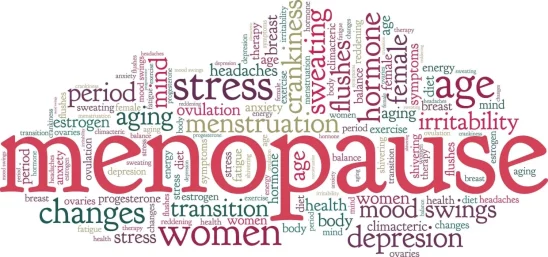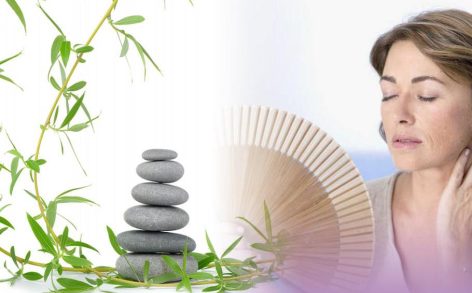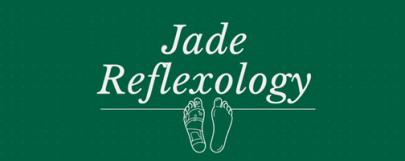The Menopause & Reflexology
The menopause is a naturally occurring, gradual process when a woman’s body moves from childbearing years into healthy ageing.
Menopause can be a new beginning - a time when a woman's sense of purpose can change enormously - an opportunity for transformation and growth
It is not an illness or disease.
However there are many emotional and physical symptoms that women can experience whilst undergoing this phase of their lives, which can impact their daily lives.


What happens to our bodies?
Firstly the hormone progesterone starts to decline, which can leave times when the hormone oestrogen is higher – oestrogen dominance. This is what contributes to or causes some of the most unpleasant menopausal symptoms, including bloating, insomnia, fatigue, anxiety, headaches, hot flushes, low libido, brain fog and more! Oestrogen can also rise when there is a high calorie diet with little exercise and being overweight, as fat cells can also produce oestrogen.
Studies have shown that chronically elevated cortisol increases the likelihood of severe menopausal symptoms – so reducing stress and prioritising relaxation are key.
Achieving and maintaining homeostasis in the body is vital. Homeostasis is the state of equilibrium (stability and balance) in the body’s systems. This process helps the body to achieve a balance by regulating the body in response to other factors. The most well known example is your body’s response to external temperatures; if it gets too cold your body will increase your circulation to keep your important organs at the right temperature. Homeostasis cannot be achieved while there are too high levels of cortisol in your body, therefore lowering stress can have a profound effect on your symptoms.
There is no one size fits all, miracle ‘cure’ for the menopause, and it can affect women differently, however being aware of the changes and making some lifestyle changes can empower you to face the menopause head on and understand and deal with any challenges.
Hot flushes & Night sweats
Palpitations, anxiety, headaches, body sweats, dizziness, blushing can all occur when having a hot flush. Some of the known triggers include: Smoking, stress, gaining weight, caffeine, alcohol, sugar, spicy food, Monosodium Glutamate.
Some self-help techniques to help cope with hot flushes or night sweats:
- Wear natural fibres in layers wherever possible. These help keep us naturally cool and allow the body to breathe, for example wool, linen, cotton and silk.
- Use silk, cotton or linen bedding, and a duvet with a lower tog value (or switch to cotton sheets). These help with regulating the body at night as these fabrics are designed to wick heat and sweat away from the body.
- Keep your bedroom cool at night – open a window, use a noiseless fan and/or keep the central heating down to between 16 and 18OC (60-65OF). Also close your curtains in the evening before bedtime especially if the sun shines into your room in the evening. This helps to block out some of the heat from the sun.
- Stay hydrated by drinking plenty of cold water during the evening and keep a glass by the bed.
- Fill a hot water bottle with ice-cold water, or use cool gel packs/ice packs wrapped in a towel, and place it near the feet, or alternatively, cool socks in the fridge – cooling your feet lowers the overall temperature of your skin and body.
- Keep a small fan and facial spray with you at all times – they really do help to cool you down.
The Male 'Menopause'
Male testosterone levels begin to slowly decrease from the ages of 30-40 and gradually continues to decline, rather than stopping completely.
Whilst the jury is still out on whether the male menopause is a real thing, this decline can affect men in any number of ways including: sexual problems, fatigue, loss of muscle mass, sleep disturbance, depression, increase in body fat (usually around the belly and/or ‘man-boobs’), poor concentration and short term memory loss.
Similar lifestyle factors as women can also contribute to some of these symptoms.
This is a very complex time in both women’s and men’s lives and symptoms can interfere with everyday life and wellbeing.
As we age we need less sleep, however too little sleep can be detrimental to mental health, cardiac health, cognitive function and osteoporosis.
Relaxation, getting enough restorative sleep and reducing stress are three of the most important things you can do to help your body cope with the challenges of the menopause years. Regular reflexology can aid all 3 of these. It promotes deep relaxation and improves physical and emotional wellbeing leading to reducing stress overall.
'foot reflexology is a useful intervention to relieve fatigue and to promote sleep'
Effects of foot reflexology on fatigue, sleep and pain: a systematic review and meta-analysis.
Lee J, Han M, Chung Y, Kim J, Choi J. J Korean Acad Nurs. 2011 Dec; 41(6):821-33
Get in touch
Feel free to contact me if you have any questions about how therapy works, or to arrange an initial assessment appointment. This enables us to discuss the reasons you are thinking of coming to therapy, whether it could be helpful for you and whether I am the right therapist to help.
You can also call me on |phone| if you would prefer to leave a message or speak to me first. I am happy to discuss any queries or questions you may have prior to arranging an initial appointment.
All enquiries are usually answered within 24 hours, and all contact is strictly confidential and uses secure phone and email services.
“I've learned that people will forget what you said, people will forget what you did, but people will never forget how you made them feel.”
Maya Angelou
“Life isn't about waiting for the storm to pass - it's about learning to dance in the rain!”
Vivian Greene
“The feet are like a mirror, reflecting the state of the body and mind.”
Unknown
